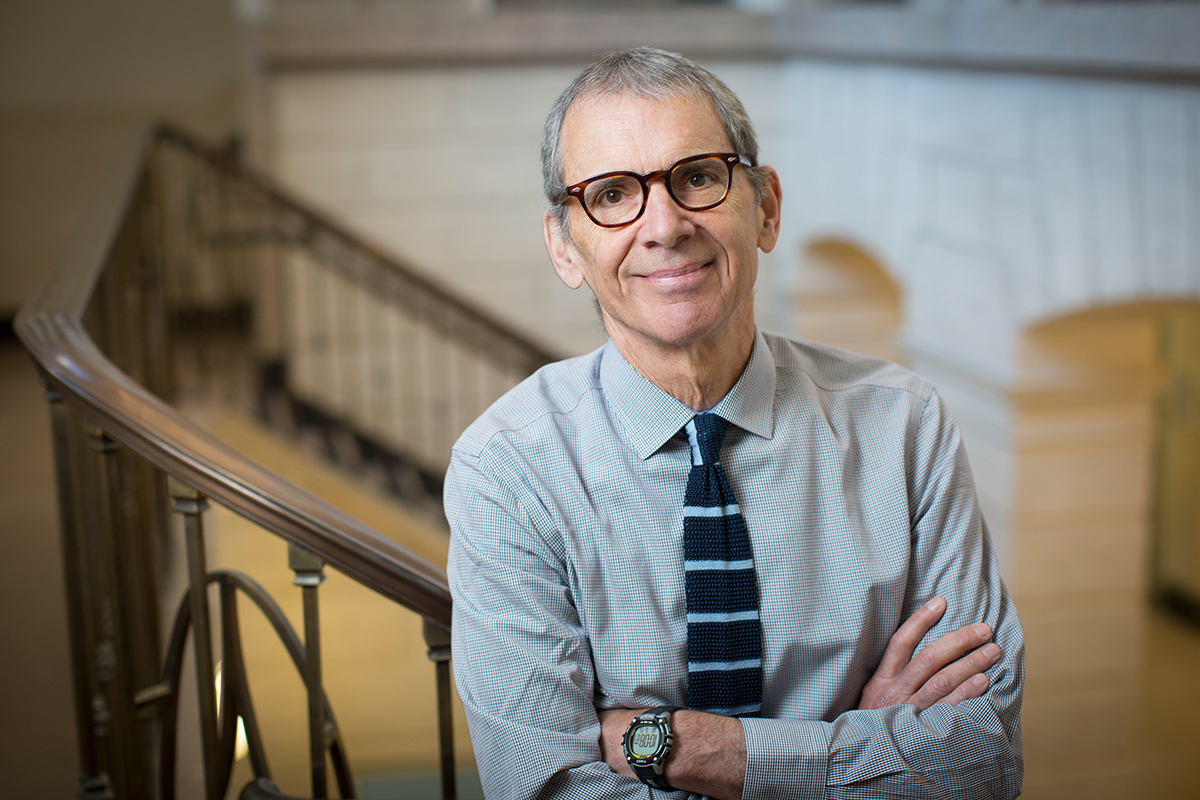Edward McLaughlin named interim dean of the Dyson School
By Susan Kelley

Edward McLaughlin, a distinguished expert in the efficiency of food distribution systems, will become the interim David J. Nolan Dean of the Charles H. Dyson School of Applied Economics and Management starting July 1, Provost Michael Kotlikoff announced June 21.
A faculty member since 1983, McLaughlin is senior associate director of the Dyson School. For 20 years he has been the Robert G. Tobin Professor of Marketing and has directed Dyson’s Undergraduate Business Program, the largest undergraduate major in any one college at Cornell, with 700 students. McLaughlin’s academic appointment includes an outreach component; he has decades of experience working with food industry companies, trade associations and public policymakers. He also directs Cornell’s Food Industry Management Program.
He brings to the Dyson leadership “incomparable experience,” said Kotlikoff, noting that McLaughlin has been recognized as one of Cornell’s pre-eminent teachers as a Stephen H. Weiss Presidential Fellow and as one of the foremost experts in the food industry.
“As senior associate director, Ed has been second in command at Dyson for quite a few years and, thus, offers a steady administrative hand as well as pedagogical and scholarly excellence,” Kotlikoff said. “Ed is well-known around the campus and widely admired at Dyson, and we are grateful for his leadership.”
McLaughlin will serve until June 30, 2017, or until a permanent dean has been named. A search committee for that position has been appointed and will begin work soon, Kotlikoff said.
McLaughlin will jointly report to Kathryn Boor, the Ronald P. Lynch Dean of the College of Agriculture and Life Sciences (CALS), and to Soumitra Dutta, dean of the Cornell College of Business.
“The Dyson School will benefit from Ed’s deep knowledge and leadership experience as he assumes this role,” Boor said. “I look forward to working with him in his new capacity as he leads the school through the upcoming launch of the College of Business.”
“Ed is an eminent researcher, an outstanding teacher and mentor, and an energizing leader,” Dutta added. “I know he will approach his new role with the intellect, commitment and integrity that he brings to all he does.”
McLaughlin expressed appreciation for the opportunity to be of service to Dyson and Cornell. “For 34 years I’ve had the privilege of conducting research, teaching world-class students and seeing the impact of our applied food distribution work in my outreach responsibilities,” McLaughlin said. “The extraordinary people on this campus create an incredibly motivating and gratifying place to spend one’s career. I owe a large debt of gratitude to Cornell.”
His vision for Dyson centers on preserving and enhancing its 100-year history in “working on problems that matter in the world,” he said, “from resource management and the environment to the economics of emerging markets, agriculture and food systems. What’s also really exciting is how many of our more general management faculty – in entrepreneurship, finance, accounting and more – often make major contributions to these historical themes of Dyson scholarship.”
“We want to continue to work in those areas, and we see lots of collaborative opportunities with our colleagues in the Samuel Curtis Johnson Graduate School of Management and the School of Hotel Administration,” McLaughlin said. “We need to protect and preserve our legacies and the pride that all three schools justifiably have in their brands and also build upon them through collaboration.”
McLaughlin’s honors include a best paper award from the American Journal of Agricultural Economics, the Presidential Award for Excellence in Research and Communication from the Food Distribution Research Society, the State University of New York Chancellor’s Award for Excellence in Teaching, the CALS Professor of Merit Award and other teaching accolades.
McLaughlin earned a Ph.D. in 1983 from Michigan State University and a master’s degree in 1977 from the University of Vermont. In 1970, he received a bachelor’s degree from St. Lawrence University.
Media Contact
Get Cornell news delivered right to your inbox.
Subscribe